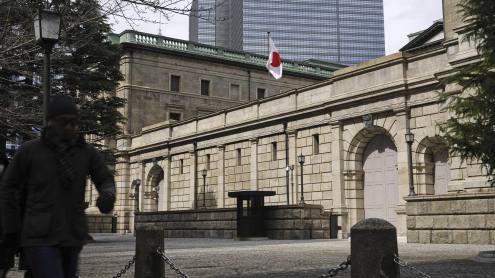Malta may not have been as badly hit by the financial crisis as many of its fellow EU members but there is no denying that it is now feeling the chill winds of recession blowing in. Tonio Fenech, the country's minister of finance, economy and investment, is frank about the problem.
"The situation over the past few months has been one of damage limitation," he says. Malta's economy is forecast to have "no growth, or slightly negative growth, in 2009", and the unemployment rate has risen from 4.5% to 5.5% in the past year. "But we have not done as badly as others in the EU," adds Mr Fenech.
The International Monetary Fund's (IMF) World Economic Outlook released in April supports these figures. Real gross domestic product growth for Malta last year, at 1.6%, was the seventh highest in the euro area according to the IMF. This year, the IMF forecasts that this figure will decline by 1.5%, which would be the third highest performance in the euro area.
Finance for growth
"Despite the slowing economy, there are still some sectors experiencing growth. Financial services is one of them," says Mr Fenech. "In the past year, jobs in the sector increased by 1000, to 7000." That may not seem much numerically, but it is a 17% rise.
"The financial sector withstood the storm very well. Although banks had some write-downs because of the assets they held, they didn't have any toxic assets. They were market-driven write-downs, which will be recovered as the economy recovers, rather than real losses that would have had a more permanent impact on the institutions. The banks are highly liquid and solidly based. They are quite conservative in their approach, and that has served them well," says Mr Fenech.
In the past few years, Malta has succeeded in attracting a large number of overseas fund managers, fund administrators, captive insurers and international pension schemes. The situation is not so rosy for manufacturing, particularly in the automotive and electronic industries, where international demand has fallen.
"Some companies have moved to a four-day week," says Mr Fenech. And the government has given some of them financial assistance to invest in new production lines.
Interest from overseas
Across the economy as whole, interest from foreign companies that are considering setting up on the island is still high.
"I am proud to say that foreign direct investment opportunities and plans have actually increased as more organisations have had to review their operating situation and location with a view to relocating business in more competitive countries," says Mr Fenech.
"In this case, Malta has increasingly come within management's radar. Moreover, we are working with excellent and strategically minded investors already located in Malta to expand their facilities here. Interestingly, they are finding that operations which are no longer feasible in other countries can be successful here, highlighting our competitiveness as a truly business-friendly people and country."
Public finances
The Nationalist government, in power since 1998, has done much to improve the management of public finances and to restructure the public sector since Lawrence Gonzi was elected prime minister in 2004. The current economic situation threatens to undo some of that work.
"We set the objective that by 2010 we would balance the budget," says Mr Fenech, who was appointed to his current position in March 2008, having spent the previous four years as parliamentary secretary at Malta's Ministry of Finance. "We were on track until the crisis, but the crisis has derailed those plans because government revenues have been impacted on," he says.
Meanwhile, public spending has increased to keep the economy afloat and to save as many jobs as possible. "Although financial sustainability remains a priority, it does at times have to succumb to job protection," says Mr Fenech.
Tapping into the market
The EU has provided a huge market for Malta to tap into and adopting the euro has almost certainly saved it from currency chaos and capital flight. What more can the country get out of EU membership?
"Clearly there are other opportunities," says Mr Fenech. "The EU can, for a small country like ours, give us leverage beyond what we could achieve on our own. Being part of a bloc of 27 countries helps us in bilateral trade agreements with bigger countries. It means much more than the internal market and the euro."
Mr Fenech adds that he recently met for a one-to-one lunch with Catherine Ashton, the EU trade commissioner. Clearly the opportunities he mentions are being explored to the full.












